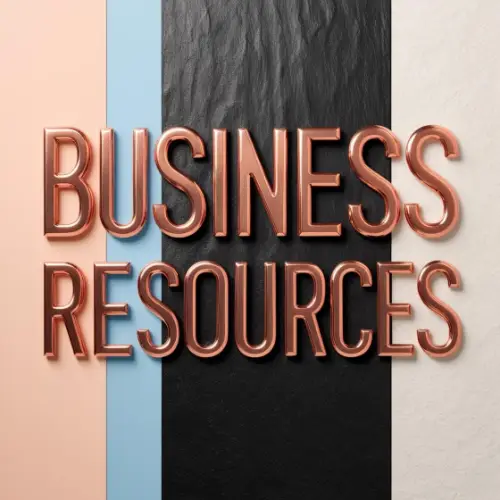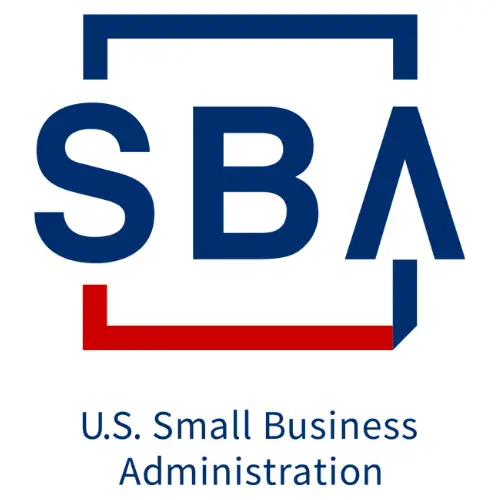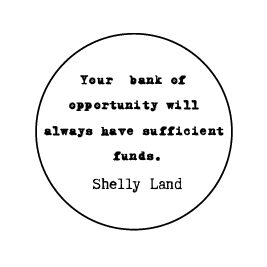
We’re passionate about equipping you with the tools and insights you need to thrive. Whether you’re here for guidance, inspiration, or actionable resources, our mission is to help you take meaningful steps toward your goals.
The bold, black font within the paragraphs are affiliate links. If you would like to use these recommendations, visit our Partner Resources page.
How to Start a Business Without Forming an LLC
Starting a business doesn’t have to be overwhelming. Here’s a simple breakdown of the steps you can take to begin your journey without needing to establish an LLC right away.
Define Your Business Idea & Choose a Name – identify what product or service you want to offer. Focus on solving a problem or meeting a need in the market.
Conduct Market Research – understand your target audience, competitors, and demand for your offering. This will help shape your approach. Select a unique, memorable name for your business. Check local and online databases to ensure it’s not already in use.
Register Your Business (if required) – depending on your location and business type, you may need to register your business name as a sole proprietorship or under a fictitious name (DBA – Doing Business As).
Organize Your Finances – maintaining financial clarity is essential for any business. Start by opening a dedicated business bank account to separate personal and business finances, ensuring smoother tracking and professionalism. Additionally, establish a record-keeping system—whether it’s accounting software or a simple spreadsheet—to manage income, expenses, and taxes effectively. Staying organized from the start will save you time and stress down the line.
- Build Your Presence and Start Marketing – create a website and social media profiles to boost your business’s visibility. Once your foundation is set, use tools like flyers, word-of-mouth, online ads, or collaborations to attract and engage your audience effectively.
Below, we’ve expanded on each step to give you the information and tips you need to begin.
Define Your Business Idea & Choose a Name
Begin with a clear idea of the product or service you want to offer. Identify a problem or need you can address, and make sure your idea aligns with your strengths and interests.
To add, it’s vital to lay a strong foundation. This means choosing a name, defining your mission, and considering factors like demographics, market research, and funding.
I recommend using DreamHost to purchase your domain, which you can then use for your professional email with Google Workspace. I’ve used both of these intuitive platforms for almost a decade.

Conduct Market Research
Next up, market research involves analyzing your industry, audience, and competitors, while demographics focus specifically on the characteristics of your target audience, such as age, income, and location.
There is a host of information via the Small Business Association (SBA). I suggest reading the market analysis, writing a business plan, then launching your business tabs.
Currently, formal registration like an LLC or DBA isn’t always necessary. However, as your business grows or your needs evolve, you may want to explore these options to protect your assets or operate under a business name. Below, we’ll briefly outline the differences to help you decide if incorporating is right for you.

Register Your Business
Let’s start with the LLC (Limited Liability Company): An LLC provides legal protection by separating your personal assets from your business liabilities. It’s a flexible option that suits small businesses and is relatively easy to set up. I recommend using Tailor Brands (affiliate link) they offer a simple, click-and-go solution for starting your business. They even have marketing materials.
If you need to update your business name, here are instructions. To add, if your address needs to be updated use this guide. (For Virginia)
Keep in mind, you’ll also need a registered agent. While the service linked above doesn’t provide one, you can easily add that with Bizee. Every state requires a corporation or an LLC to have one. This address will be used by the state for any official legal and tax correspondence, it is not the same as your business address.
DBA (Doing Business As): A DBA is a way to operate your business under a name other than your legal one. It’s simpler and doesn’t create a separate legal entity, so personal and business liabilities remain the same.
Also, you can get your (EIN) Federal Tax Identification Number. You can’t use a registered agent’s address to file for an EIN because the IRS requires a physical business address.
Some states allow storage units as business addresses, but this may appear less professional to clients. Many states also prohibit registering a business with a PO Box. If using a home address, be aware that it becomes public information.

A virtual office isn’t mandatory, however, it can present a more polished image when clients search for your business. If you’re looking for a professional option, I’ve included a link to a virtual office service. Although not required, it can enhance your business’s appearance
Consider investing in Opus. I’ve partnered with them to offer a live receptionist, mail handling, and more starting at $99 in multiple states. I paid $120, which included optional add-ons like the call-out feature and a toll-free number, each for an extra $10.
If you prefer, there’s also a $79 receptionist-only option if you already have a physical location. Contact me directly for that option.
One last thing, some businesses may require insurance or surety bonds, I trust and use Next (affiliate link).
Organize Your Finances
And Gusto (affiliate link) is a software platform that helps small businesses and startups with payroll and human resources.
Also, there are different banking institutions that will fit every individuals needs. Find one that aligns with your structured business. Consult with a financial advisor.
Square (affiliate link) is a good option for mobile or brick and mortar businesses. I have used them in the past. Get a free mobile card reader or inquire about prices for the point of sale system.
Additionally, when you apply for a Dun & Bradstreet (affiliate link) here, the Data Universal Numbering System issues a nine-digit number that’s unique to your company. This is used to create your business credit file, similar to how your social security number is used to identify your personal credit reports. There is a free option too, scroll to the bottom of the screen.

Build Your Presence & Start Marketing
Once your finances are organized and your business foundation is solid, it’s time to shift your focus to building your presence and launching your marketing efforts.
Creating visibility and connecting with your audience are key to establishing a professional image and effectively promoting your brand.
Utilize social media, build a user-friendly website, engage through email marketing, and leverage online directories to enhance your reach.
Joining industry groups like the National Notary Association (NNA) or local communities, networking based on trust, and even bartering services can further expand your professional circle and opportunities. I discuss networking more here.
I mentioned DreamHost (affiliate link) earlier. They aren’t just an amazing platform for creating a domain—you can build your website there too! In the past, I tried a few others, but I prefer DreamHost because of its user-friendly interface.
In my opinion, anyone can create a website, but their chat assistance has been a lifesaver for me on numerous occasions. The point is you want a prospects and/or partners to be able to find you. If you don’t want a full site, consider a landing page or create a LinkTree account.

Additional Marketing Tools
While the essentials of marketing—like establishing your presence and reaching your audience—lay the foundation, there are additional tools and resources that can further enhance your efforts. They aren’t mandatory but can be valuable in refining and expanding your marketing strategy.
Gleam (affiliate link) is an intuitive giveaway platform that makes it easy to set up and manage campaigns. They offer robust analytics to track the success of your contests!
I’d like to mention, word of mouth marketing, is a practice where customers recommend your business to others, so a giveaway promotion could generate buzz and encourage people to talk about your brand.
VistaPrint (affiliate link) is a great choice for banners, business cards, everything to market your brand! I’ve used them for two decades! I adore VistaPrint.
Later (affiliate link) is an AWESOME tool for scheduling your social media posts! I highly recommend Later and have used them for years. In all fairness, Facebook offers a feature via your like pages. I will share a tutorial soon. We will learn about it together!
In conclusion, I have used Canva for many years. They have a variety of creative features I love.
thanks for visiting

